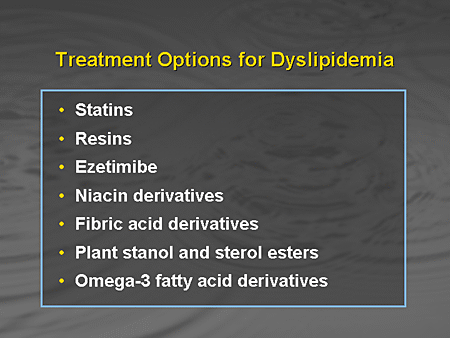
The most common cause of dyslipidemia is sedentary lifestyle, unhealthy eating, and being overweight. The disorder is also hereditary, with one in 200 to 250 people having the condition. A doctor can prescribe statins, or lipid-modifying medications, to treat high cholesterol levels. These drugs interfere with the production of cholesterol in the liver. However, some drugs can also contribute to high levels of triglycerides.
Other symptoms of dyslipidemia include a rapid rise in LDL cholesterol (bad cholesterol), weight gain, and poor mental health. These factors may also increase the risk of cardiovascular disease, a leading cause of death in the United States. Women with a family history of cardiovascular disease may be particularly at risk for the condition, and women with a history of heart failure may also be affected. A specialist will be able to rule out other causes of the condition and provide treatment options.
Treatment for dyslipidemia depends on the symptoms and severity of the disease, as well as the severity of the patient’s underlying condition. Dietary changes and exercise may be recommended, and a healthy lifestyle can help lower triglycerides and reduce the risk of heart disease. For more severe cases, surgery may be necessary. To help manage the condition, women with diabetes should make a conscious effort to reduce their triglycerides and to maintain a healthy weight.
The best way to treat and prevent dyslipidemia is through a healthy lifestyle. These changes will help lower the triglycerides and lower the risk of heart disease. A balanced diet that includes fruits, vegetables, and low-fat dairy products is a good way to lower the cholesterol level. As with any disease, people with dyslipidemia should work with a nutritionist to understand why certain foods are so important and how to eat them in moderation.
In addition to medications, a healthy lifestyle is essential for treating and preventing dyslipidemia. These changes can help reduce the triglycerides and reduce the risk of coronary heart disease. In addition, a healthy diet includes fats, including olive oil. A healthy lifestyle can help control dyslipidemia and lower the risk of cardiovascular disease. For women, increasing exercise helps reduce triglycerides and increase the risk of coronary heart disease.
If you have diabetes and other medical conditions, it is important to be checked by a doctor. Diabetic women are especially at risk of developing dyslipidemia and need to undergo regular screenings to monitor any changes in their blood lipid levels. By reducing cholesterol, women can improve their health and lower their risk of cardiovascular disease. During the course of a disease, the doctor may also prescribe medication that can lower triglycerides.
Lifestyle changes can also help people with dyslipidemia. The best ways to lower triglycerides are to avoid sugar and eat healthy fats. These can be found in olive oil, avocado, or nuts. Other healthy fats include fish, turkey, and fish. In addition to a healthy diet, you should also increase your physical activity. This will help you lose excess body weight and improve your overall health. If you suffer from dyslipidemia, you should seek medical treatment right away.
Depending on the cause of dyslipidemia, lifestyle changes can be effective in lowering cholesterol levels. By eating foods that are low in calories, saturated fat, and trans fat, you can also lower your triglyceride levels. If you have diabetes, you should avoid sugary foods and foods with trans fats. A healthy diet will help you reduce your risk of cardiovascular disease. A good example of this is eliminating trans fats from your diet.
Another way to lower triglyceride levels is through exercise. A healthy diet can reduce the amount of fat in your body. You should aim for 150 minutes of physical activity per week, especially if you are overweight. A healthy lifestyle can also reduce the risk of cardiovascular disease. If you don’t have any symptoms, talk to your doctor or health care provider at https://ihealzy.com. They may prescribe medications to help lower triglyceride levels.
If you have a family history of high cholesterol, it’s important to seek medical attention as soon as you suspect you have dyslipidemia. While this condition is often treatable, it can lead to complications. In particular, it can lead to atherosclerosis, which is a serious complication of high cholesterol levels. This can lead to strokes and heart attacks. Fortunately, the symptoms of dyslipidemia can be easily managed with statins and fibrates. If you have high cholesterol, your doctor may also prescribe a specialized medication for you.

Be First to Comment